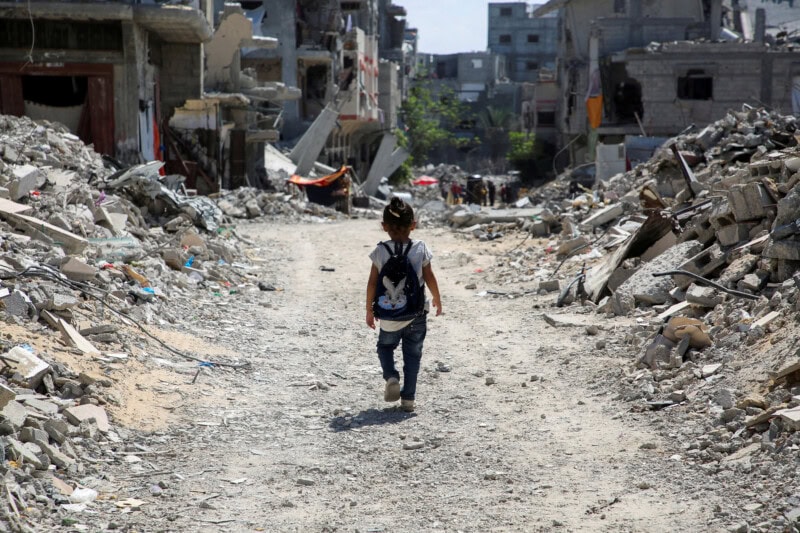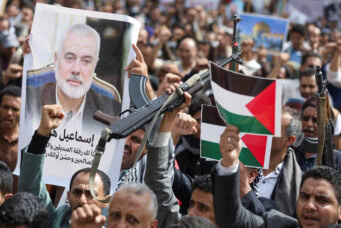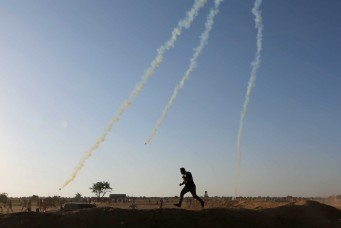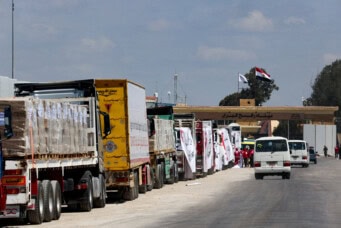It’s Been a Year
It’s time to end this war

It’s been three-hundred-and-sixty-five days since Hamas did the unthinkable and launched a series of attacks on Israeli settlements bordering Gaza, killing hundreds of soldiers and civilians.
Hamas fighters withdrew to Gaza with more than 200 Israeli men, women, and children—hostages—in tow, ostensibly to barter for the thousands of Palestinian men, women, and children in Israeli jails.
It’s been eight-thousand-seven-hundred-and-sixty hours, give or take, and the death toll of Israelis, Palestinians, Yemenis, and now Lebanese clocks in at roughly six people killed every hour since October 7, 2023. More than five of those six are Palestinians. Two of those five Palestinians killed are children.
Two Palestinian children have been killed every hour in the past year while the world watched, helpless to stop the senseless slaughter, negotiate a ceasefire, or stop the Middle East’s inexorable slide to full-fledged war.
Since this travesty began, Israel has been publicly condemned by even its most staunch allies for its disproportionate and indiscriminate killing of Palestinians; the death toll stands at more than 42,000 in Gaza, hundreds in the West Bank, and nearly 100,000 wounded. Some 727 Israeli soldiers and 66 police personnel have been killed in the past year; 885 Israeli civilians have also been killed.
Tragically, the casualty toll is only the tip of the iceberg of the human misery unfolding in Gaza and beyond in the region. This conflict has seen entire cities razed to the ground; critical healthcare and humanitarian relief services targeted with impunity; the weaponization of food bringing the entire population of Gaza to near starvation levels; and the constant displacement of Palestinians—and now Lebanese—with wanton abandon. More disturbing than the violence is the fact that we have now become desensitized to even its most horrific manifestations; since Israel’s assault on Lebanon, Israel’s near daily massacres in Gaza barely receive mention in international media.
Gaza is a wasteland—hospitals, schools, playgrounds, and religious facilities have been destroyed; less than 20% of the infrastructure which once sustained a civilian population (already buckling under economic siege) is left standing. But these remaining vestiges of functionality, too, are in danger of destruction.
In the meantime, there is not enough food, not enough water, and not enough medicine and areas believed to be safe zones continue to be bombed by Israeli forces. Disease and malnutrition have become the realities of Palestinian childhood.
This is an unprecedented humanitarian crisis, a genocide brought before the International Court of Justice, while international law—and the global community which endorses it—appears ineffective.
The possibility of spill-over is all too real; Israeli fighter-bombers pummel cities while ground troops invade villages in Lebanon, much as they did in Gaza. The Israeli Air Force has also hit ports in Yemen and targets in Syria; the world holds its breath ahead of a possible retaliation against Iran for its firing of 180 surface-to-surface ballistic missiles last week.
Where we go from here is anyone’s guess. Hamas is weakened but not destroyed; Hezbollah is weakened but not destroyed; some 95 Israelis are still held captive by Hamas. Israeli Prime Minister Benjamin Netanyahu’s stated goals for war have not been realized. With just a month until the U.S. elections, the wager is on intensified combat, with civilians paying the price for military misadventures.
Pressure to stop the war has continued from many channels, including Israeli politicians. Stop the madness, former Israeli Prime Minister Ehud Olmert and former Foreign Affairs Minister of the Palestinian National Authority Nasser El-Kidwa have said. Together, they have put forward a ceasefire mechanism linked to a process for realizing the two-state solution.
If the war does not stop, if Israeli military aggression is not checked, there may only be a one-state reality left, locking Palestinians and Israelis in a cycle of conflict that will continue to produce stupefying levels of violence.
The Cairo Review




